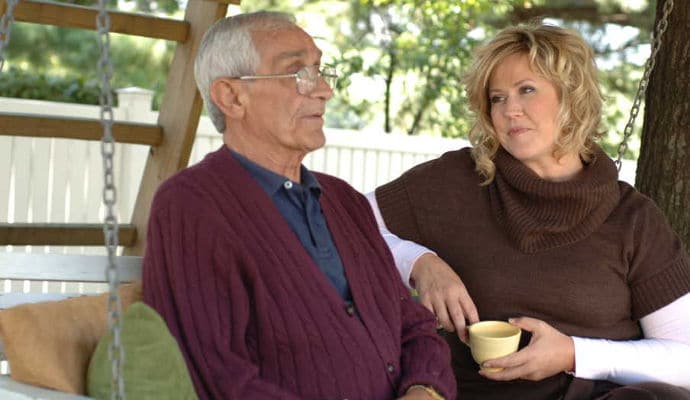When seniors are diagnosed with a serious health condition, you may not know how to help. In this article, Honor shares 7 meaningful ways to support an older adult with a chronic illness.
When someone you care for is diagnosed with a chronic illness, you may feel the immediate urge to help but don’t know how. Being a new caregiver comes with new responsibility.
Most caregivers we know spend their time helping with activities of daily living, coordinating care, offering emotional support, and being a supportive advocate. Depending on the illness, treatment and recovery will vary so stay open to an evolving plan.
For friends and family members of older adults coping with a new diagnosis, it’s important to acknowledge that there is no “one-size-fits-all” approach to supporting someone with a complex illness. We talked to caregivers, care professionals and care recipients to create a list of the 7 most meaningful things anyone can do.
1. Expect change
Caring for someone with a chronic illness is a demanding job and no one really understands the responsibility unless they’ve done it too.
It’ll be difficult to anticipate what kind of assistance your older adult might need, but being on the lookout for changes will help you know how to adjust the care you’re giving. It’s better to be prepared for change, than to constantly feel surprised.
2. Build your care team
The role of a caregiver is not limited to spouses, partners, or close relatives. You’ll need a team of care partners and a community of supportive allies.
If you can’t rely on family or don’t have family nearby, it’s equally important to build and define your own chosen families, made up of friends, neighbors, and care professionals who can assist with care, support, and wisdom from personal experiences.
3. Make the home safe
You’re used to your home the way it is, but when a person in the home has a health condition, you need to look at your home in new ways.
The person may forget what the knobs on the stove are for and turn on the gas, or forget that they’ve already taken their morning dose of medication, or maybe the fridge and pantry need to be cleared out of potentially harmful foods.
Sometimes, it can be helpful to have a friend with a fresh set of eyes to assess potential dangers in your home. Improvements can be simple DIY projects.
4. Conduct research
The best way to make good choices is if everyone involved is informed and educated on the issues and options. It’s okay to ask a lot of questions, request second opinions, and turn to other experts and organizations who can offer additional information and support.
Don’t be afraid to find others who are facing similar issues. People with lived experiences tend to have unique and first-hand wisdom on how to cope with and overcome certain challenges.
5. Plan for the future
When an older adult is diagnosed with a new illness, it’s important to start getting their health, legal, and financial affairs in order. As much as possible, you’ll want them to be involved and centered in planning for their future. Encourage your loved one to express their wishes while they can still make decisions.
Be sure to review all pertinent health, legal, and financial information – living wills, powers of attorney for finances and health care, trusts, and Do Not Resuscitate (DNR) forms – to make sure their wishes are reflected.
6. Be easy on yourself
Caregiving is demanding, physically, mentally and emotionally. Remember to pay attention to your own well-being along the way. You may feel like you have to do everything, but you deserve rest and time to yourself too.
7. Consider assistance for you and your loved one
If you’re not getting the support you need through family, friends, or other personal networks, arranging for care professionals to assist could be the ideal solution.
Specialized assistance can include transferring, lifting, and toileting, as well as transportation, companionship, and managing illness symptoms and treatment side-effects.
Recommended for you:
– 7 Tips for Helping Seniors at the Doctor’s: Being a Health Advocate
– Palliative Care Improves Seniors’ Quality of Life
– 4 Tips for Managing Multiple Health Conditions
Guest contributor: Honor is a comprehensive home care company helping older adults continue to live safely in their own homes as they age. Currently providing care in California and Texas, Honor offers a higher level of in-home care by combining the best professional caregivers with smart, easy-to-use technology that makes scheduling, delivering, and managing care simple and safe.
Image: Western
This article wasn’t sponsored and doesn’t contain affiliate links. For more information, see How We Make Money.





